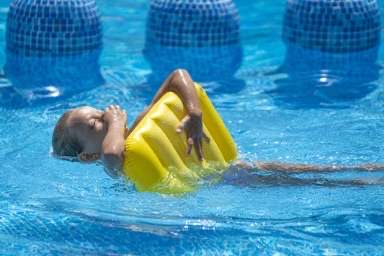Ramadan is the Islamic holy month where Muslims worldwide abstain from eating or drinking between sunrise and sunset. The fasting window during Ramadan can last between 16 and 17 hours, which can be challenging for many Muslims aiming to progress their fitness and body composition goals

It can be tempting to abandon your training and regular diet during Ramadan – but this can really set your progress back. Instead, planning ahead with your diet and being smart with your training program can help maintain your hard-earned progress and put you in a good position for when Ramadan ends.
Aim for maintenance rather than progress
The first thing to remember is that it’s important to continue training during Ramadan – don’t use it as an excuse to let your regular training routine slip. However, it is likely that your output and performance in the gym will be reduced, so for many gym-goers, Ramadan is about maintaining their strength and muscle mass. If a client hasn’t trained for a few weeks, we often advise lowering their weights by 10% – this is a sensible approach to take during Ramadan too.
Don’t be afraid to reduce workouts
Aim for a minimum of three resistance training workouts a week. You can train more frequently, but we recommend limiting each session to 45 minutes. Maintaining your muscle mass and strength is a lot easier than trying to build muscle during the month of fasting, so don’t be afraid to decrease your volume and shorten your workouts – you can still get a lot done in 45 minutes.
The best time to train is after breaking the fast in the evening. Sometimes training so late in the evening isn’t always ideal, particularly during the working week. If this is the case, try timing your workout schedule so two workouts fall on weekend days where you can stay up later without worrying about being tired for work. You may also need to find a late-night or 24-hour gym if your gym doesn’t have extended hours during Ramadan.
Add new exercises to your program
Ramadan can actually be an opportune time to introduce new exercises into your training program. Normally, it can be frustrating trying new exercises as it can mean having to lift lighter weights than your muscles can handle while you master the technique. But adding new movements into your program during Ramadan means you can start off lifting lighter, focus on technique, and still feel like you’re progressing.
Don’t worry if your strength drops during the first week – however, if it continues to drop, your approach to training and nutrition may need altering. It is therefore important to have a set training program to follow – you cannot monitor your progress if you’re changing up your workout every few days. Always keep detailed records of every workout. Documenting your progress means you can learn from the experience and refine your approach.
When training, avoid training to failure and pushing yourself too hard. Stop one to two reps short of failure on each set. It’s wise to remove any intense cardio or conditioning exercises from your program during the month. Focus on your daily activity levels and hitting a step target instead.
Overeating can still occur
Nutrition is especially important during Ramadan. Don’t let your diet go out the window – plan ahead and try to stick to your regular eating habits as much as possible. Even with the large fasting window, it can still be possible to overeat during Ramadan with calorie-dense foods. If you want to maintain muscle mass, it’s important to ensure you are consuming sufficient protein alongside your resistance training. If you do have fat loss goals, use Ramadan to practice tracking your nutrition and preparing meals. You will then be ready to start your fat loss diet after Ramadan finishes. Consuming enough calories may be a problem if you have a high ‘maintenance’ calorie requirement. If this is the case, try to stop your daily calorie consumption dropping too low and ensure your protein intake is sufficient.
Dehydration may be more likely
Drinking plenty of water is critical following the lengthy fasting window where dehydration can set in. This is even more important if you are training. Fill up a large bottle of water and aim to drink it every evening. Ensure you drink plenty of water before, during and after any workouts, and monitor your urine colour to test your hydration status. You should always aim to drink enough water for your urine to be clear. You can also use an electrolyte supplement to help replace any minerals lost through sweat.
A little consistency and forward planning with your diet and training can go a long way to maintaining your health and fitness.
Ramadan Mubarak!
About the author
 Umar Malik is a senior personal trainer at Ultimate Performance
Umar Malik is a senior personal trainer at Ultimate Performance







